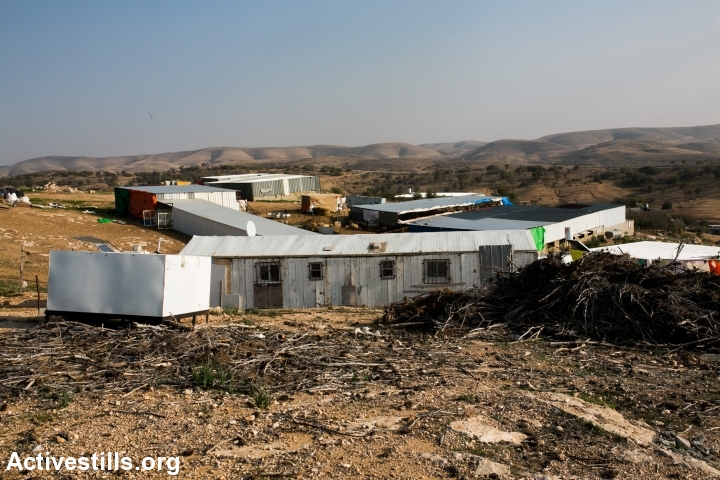In a video shot in his office, Israel’s prime minister apologizes to the country’s Arab citizens for inciting against them. But a large portion of them couldn’t watch it — they live in ‘unrecognized villages’ that Israel refuses to connect to basic infrastructure like electricity, and the internet.

Israeli Prime Minister Benjamin Netanyahu published a video addressing the country’s Arab citizens on Monday, in which he apologized for inciting against them — and undermining the most basic of democratic standards — nearly a year and a half ago, on Israeli election day, when he warned that Arab voters were coming to the polls “in droves.” It’s doubtful that it took him the past year and a half to realize the error of his ways.
The timing is more likely related to Netanyahu’s attempts to push through “law and order” conditions he reportedly slapped on an already approved economic support package for Arab municipalities in Israel worth NIS 15 billion (nearly $4 billion). The package is meant to help narrow the yawning economic and social gaps between the Arab and Jewish sectors in Israel.
The fact that Netanyahu chose to put the video out this week is a slap in the face to the Bedouin citizens of Israel who live in the “unrecognized” village of al-Araqib, who have been facing demolitions and arrests while Netanyahu sat in his comfortable chair and recorded a video they couldn’t watch. Israeli authorities demolished the village for the 101st time Wednesday morning, the latest in a back-and-forth of demolition and rebuilding that has been ongoing since 2010. The village will mark six years of its struggle for recognition this Saturday.
Joint List Chairman MK Ayman Odeh published a response to Netanyahu’s video, in which points out that the 100,000 Arab citizens living in “unrecognized” villages like al-Araqib could not view the prime minister’s apology, since the state has never hooked them up to electricity or any other infrastructure — and certainly not internet connectivity.
[Click “CC” in the bottom right of the video if subtitles don’t appear automatically.]
Odeh nonchalantly mentions that Israel’s Arab citizens are natives of this land (mistakenly translated in the subtitles as “sons of the place”). What he means is that they are indigenous peoples, that they have just as much of a right to live here as Jews. This is of utmost importance, since Israel has never recognized this fact. When it comes to Bedouin land rights specifically, at the heart of the crisis in al-Araqib, Israel’s Supreme Court ruled last year that Bedouin have no indigenous rights.
Indeed, despite Netanyahu’s call for Arab-Jewish equality, Israelis’ fundamental understanding of statehood has always been rooted in providing Jewish citizens (as well as potential Jewish citizens who don’t even live here) with privileges and rights that non-Jewish citizens have never received. The overarching principle guiding Netanyahu’s time in office has been to ensure that Israel is first and foremost a Jewish state; whatever rights Palestinians get along the way is just a generous handout.


